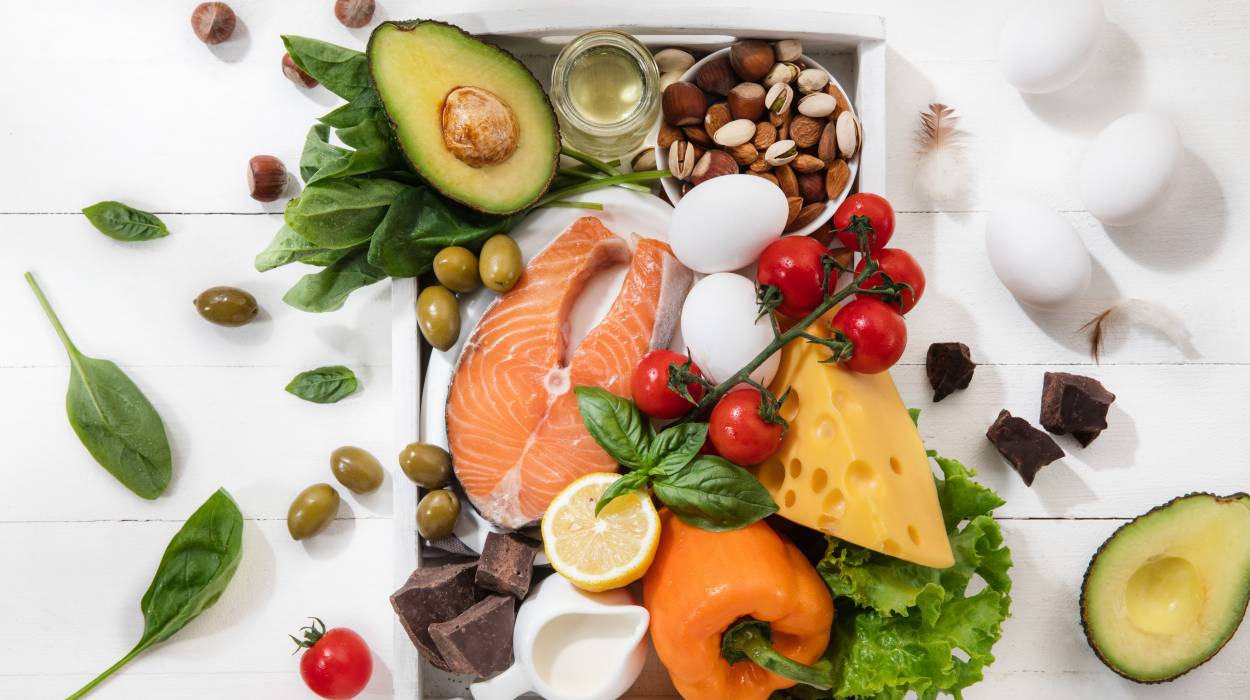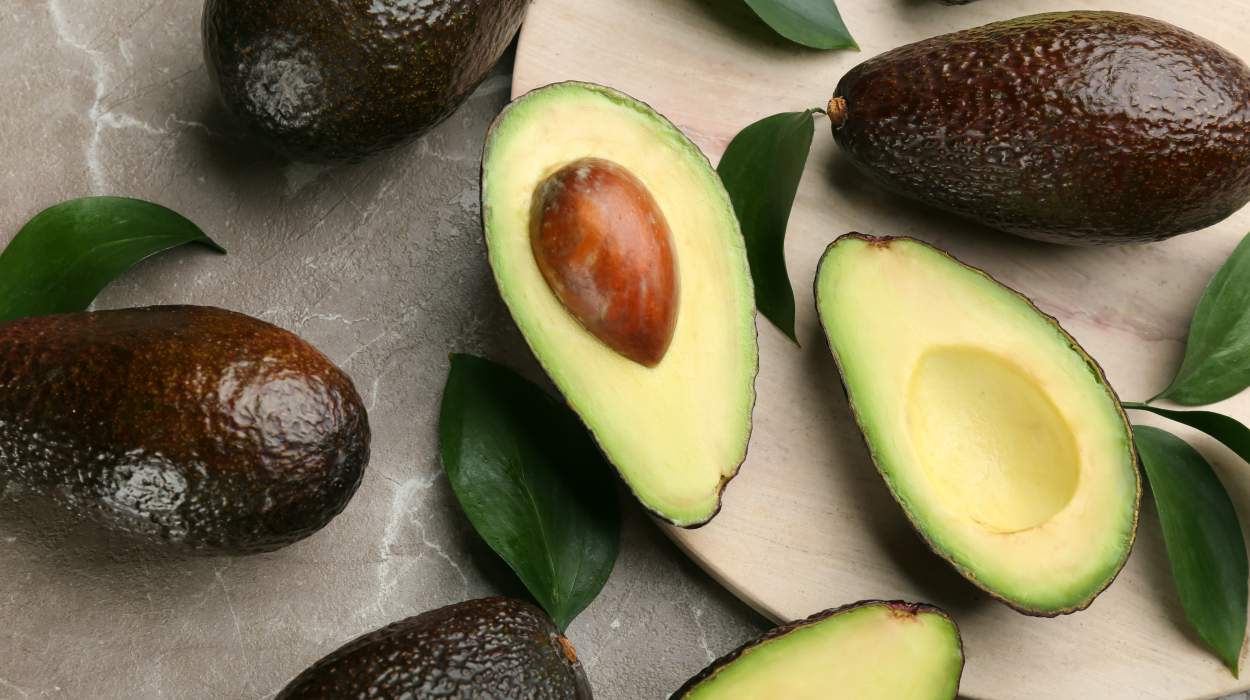 Expert's opinion
Expert's opinion
Expert's opinion
The article is a subjective view on this topic written by writers specializing in medical writing.
It may reflect on a personal journey surrounding struggles with an illness or medical condition, involve product comparisons, diet considerations, or other health-related opinions.
Although the view is entirely that of the writer, it is based on academic experiences and scientific research they have conducted; it is fact-checked by a team of degreed medical experts, and validated by sources attached to the article.
The numbers in parenthesis (1,2,3) will take you to clickable links to related scientific papers.
Quick Energy Boost On Keto Diet 2024: How To Boost Energy On Keto?

The keto or ketogenic diet has garnered much attention in recent years. It is well established for its weight loss capabilities but what about its ability to boost energy levels? In simple terms, the keto diet is a high-fat, high-protein, and low-carbohydrate diet that makes your body have to burn its fat stores in order to supply energy.
As the fat is broken down this fat-derived source gives the person a boost in energy levels[1]. The reason for this is that the amount of energy per fat gram is more than double the calories (energy) that a gram of carbohydrate (sugar) or protein provides. To give you a better understanding, a gram of fat has 9 calories, while a gram of protein or carbs (sugar) only has a mere 4 calories. This additional energy source is part of the reason you experience an energy boost!
Key Takeaways
- By decreasing your total body fat content and increasing lean muscle mass you will have more steady and efficient energy levels.
- To boost energy levels on keto you can use tips such as taking keto supplements, always staying hydrated, exercising appropriate amounts, etc…
- The best keto foods for boosting energy are avocado, egg, leafy greens, etc…
Quick Energy Boost On Keto Diet
- Fat is broken down into ketones which your brain will use for energy instead of glucose (sugar). Fat has more than double the potential energy in it per gram compared to sugar and protein.
- A decrease in fat results in a reduction in whole-body inflammation. Inflammation can cause one to feel sluggish and sore. By reducing the amount of inflammation[2] in the body you can reduce this sluggish feeling and increase energy levels.
- Avoiding carbohydrates (sugar) stops the up-and-down spikes in blood sugar levels and insulin which can create terrible highs and lows in energy levels. However, a low-carb diet with healthy fats ensures that your body is receiving a constant stream of energy supply from your stored fat. Now you may be asking yourself, but if I am eating fat, won’t I be adding to the already increasing fat levels? The short answer is no, the human body does not absorb fat very well and it takes quite a bit of energy to break fat down into an absorbable form.
- Just by losing weight, you will increase your energy levels. By decreasing your total body fat content and increasing lean muscle mass you will have more steady and efficient energy levels.

Keto Diet: What Is It?
The Keto Diet is a low-carb, high-protein, and healthy-fat diet. It derives its name from the word ketones. Ketones are molecules that are produced as a by-product of fat breakdown. The brain uses ketones for energy and this alone can make you feel satiated and desire less food. Low carb intake gives you a healthy energy boost by using the fat breakdown and fat has more than double the energy contents of carbs (sugar).
All proteins are allowed on the keto diet and it is recommended that you consume no more than 60 grams of carbohydrates per day. Many people think carbs are only sugary foods but carbs encompass any starches (potatoes, cereal, pasta, rice) and are found in fruit and vegetables. Another myth is that you have to eat carbs, however, from a biochemical standpoint, you actually don’t.
Now with that said, fiber is very important for one’s health and so a careful examination of one’s carb sources is crucial to making sure you are getting plenty of fiber but not an excess of 60 grams of carbs a day. Fiber is technically a carbohydrate but our bodies do not absorb it. So, you can subtract the amount of fiber from the total carbohydrate count on the nutrition label. The third and final major portion of the keto diet is the consumption of healthy fats.
These include foods such as olives and olive oil, avocados, coconut and coconut oil, butter, and cheeses. A great way to get high protein and high fat at the same time is to consume food items such as salmon, eggs, and nuts. These healthy fats are loaded with good omega-3 fatty acids. Fatty acids are good for lowering inflammation in the body and good for organs such as the brain and nerves[3].
Why Are Some Dieters Exhausted On The Keto Diet?
- They have intense cravings.
- They are suffering from the keto flu.
- They aren’t eating enough calories.
- They aren’t exercising enough.
- They are exercising too much.
3 Tips To Boost Energy Levels On Keto
Take Keto Supplements
Some people may opt to take supplemental ketones. These are exogenous ketones or ketones you take rather than those produced by your burning fat broken down. These ketones may help stimulate ketosis, curb appetite, and help avoid the “keto flu.”
The keto flu is a condition where you feel sluggish for the first few days of this diet while your body adjusts to the lower carbohydrate intake. Exogenous ketones may help with this by giving you a healthy energy boost.
Always Stay Hydrated
The cells of your body need plenty of water to function properly[4]. If you are chronically dehydrated your muscles and brain will move slower and make you feel sluggish. Be sure to drink at least half your body weight (pounds) in ounces of water every day. On exercise days you may need even more water.
Exercise An Appropriate Amount
Muscles are energy-producing factories. The more one exercises[5] the more energy the muscles are going to produce. Not only does exercise produce energy but it also stimulates energy production, regulates blood sugar, and helps the body burn fat.
However, while adjusting to the keto diet one can exercise too little or too much. If you are new to exercising, or the keto diet, the American Heart Association recommends you get at least 150 minutes of moderate-intensity aerobic activity or 75 minutes per week of vigorous exercise throughout the week.
Best Keto Foods To Boost Energy
Avocados
Avocados are a superb source of healthy fat and are low-carb keto foods. Experts call avocados a superfood! They are loaded with good fatty acids, fiber, antioxidants, and several different vitamins and minerals. The fatty acids and other antioxidants are superb for heart, gut, and metabolic health.
The fatty acids provide energy to your body and along with the fiber can make you feel fuller and full of energy longer. Although a superfood, their high-fat content could result in an upset stomach. Nevertheless, avocados should be a staple of any keto diet.

Eggs
All proteins are allowed on the diet but just like anything, some are better than others. Eggs are super-food and have the purest protein rating of any other source of protein. An egg also contains all the nutrients necessary to grow life, so there are many vitamins and other healthy nutrients contained within it.

Leafy Greens
Getting 2-3 cups of green leafy vegetables is a great way to naturally boost energy levels[6]. Green leafy vegetables have lots of magnesium which plays a role in blood sugar control, cortisol regulation, and energy metabolism. All three of those will help boost your energy levels while providing several key nutrients and minerals.
MCT Oil
MCT stands for medium-chain triglycerides. Triglyceride is the fancy term for fat in the bloodstream. Triglycerides are broken down into fatty acids in the gastrointestinal tract for absorption and use within the body. The MCT oil is used to help boost energy levels while on the keto diet. The idea is the body will use this oil for energy. Most of these products are derived from coconut or palm oil.
Conclusion
The keto diet is a highly effective way to boost your energy levels by tapping into the body’s fat reserves as the primary energy source. This energy is far more potent and efficient than both carbohydrates and proteins. The subsequent weight loss will also help increase your energy levels, allowing you to do more physical activities throughout your week.
Frequently Asked Questions
Some people take longer than others for their bodies to switch to a ketogenic state. We recommend sticking it out for at least another week and that you increase your exercise level. If this continues please see your physician.
Try an exogenous keto supplement, drink more water, and adjust your exercise routine.
Not at all, the keto diet is a nutrient-dense diet and provides all of your vitamin and mineral needs.
+ 6 sources
Health Canal avoids using tertiary references. We have strict sourcing guidelines and rely on peer-reviewed studies, academic researches from medical associations and institutions. To ensure the accuracy of articles in Health Canal, you can read more about the editorial process here
- Malhotra, V. and Anupama Sawal (2023). Metabolic Effects of Ketogenic Diets and Their Utilization in Obesity Management: A Systematic Review. [online] doi:https://doi.org/10.7759/cureus.36720.
- Étienne Myette-Côté, Durrer, C., Neudorf, H., Bammert, T.D., José Diego Botezelli, Johnson, J.R., DeSouza, C.A. and Little, J.P. (2018). The effect of a short-term low-carbohydrate, high-fat diet with or without postmeal walks on glycemic control and inflammation in type 2 diabetes: a randomized trial. [online] 315(6), pp.R1210–R1219. doi:https://doi.org/10.1152/ajpregu.00240.2018.
- Field, R., Field, O., Fereshteh Pourkazemi and Rooney, K. (2022). Low-carbohydrate and ketogenic diets: a scoping review of neurological and inflammatory outcomes in human studies and their relevance to chronic pain. [online] pp.1–25. doi:https://doi.org/10.1017/s0954422422000087.
- McGaugh, E. and Barthel, B. (2022). A Review of Ketogenic Diet and Lifestyle. Missouri medicine, [online] 119(1), pp.84–88. Available at: https://www.ncbi.nlm.nih.gov/pmc/articles/PMC9312449/ [Accessed 23 Jun. 2023].
- Kristin Emilia Harvey, Holcomb, L.E. and Kolwicz, S.C. (2019). Ketogenic Diets and Exercise Performance. [online] 11(10), pp.2296–2296. doi:https://doi.org/10.3390/nu11102296.
- Domenico Di Raimondo, Buscemi, S., Gaia Musiari, Rizzo, G., Edoardo Pirera, Davide Corleo, Pinto, A. and Antonino Tuttolomondo (2021). Ketogenic Diet, Physical Activity, and Hypertension—A Narrative Review. [online] 13(8), pp.2567–2567. doi:https://doi.org/10.3390/nu13082567.



